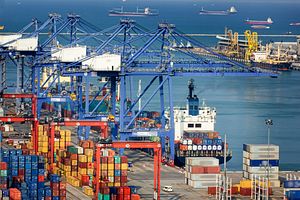The Group of 20’s growth commitment has been called into question, with advanced economies reportedly losing their enthusiasm for reform. Can the world economy get its groove back?
“Given the risk of persistent low growth and high unemployment faced by many countries, time is of the essence,” the International Monetary Fund’s managing director, Christine Lagarde, told the G20 Finance Ministers and Central Bank Governors Meeting in Istanbul on February 10.
Lagarde urged G20 governments to implement their commitments under November’s Brisbane Action Plan, saying it could “raise global growth by at least 2 percent and create millions of new jobs over the next four years.”
However, achieving the target may prove more difficult. In a new report, “Going for Growth,” the OECD has warned that “the pace of policy reforms has slowed in most advanced economies, after a significant acceleration during the global economic crisis. Emerging economies, on the other hand, are quickening the pace of reform.”
According to the OECD, reform activity has picked up speed in emerging economies including China, but has slowed in many advanced economies, particularly in the Eurozone, although with the exception of Japan.
As OECD Secretary General Angel Gurria told the Istanbul meeting: “We understand the difficulties many governments face in pushing for reforms, in a context of weak demand, limited budgetary leeway and high unemployment. But we still see structural reforms – combined with effective fiscal and monetary policy – as part of an essential trilogy to boost growth.”
Amid a growing debate over the effects of inequality on growth, Gurria said: “The pursuit of comprehensive reform strategies can be one of the keys to addressing rising inequalities and the lingering social consequences of the crisis. Implementing reforms that raise the job opportunities and earnings potential of low-skilled workers, help young people get a step on the job ladder and improve the labor market opportunities of women will unlock growth potential in our economies and ensure that it is shared by all.”
China: Freer Markets Needed
China’s slowdown has become increasingly apparent, with the world’s second-biggest economy posting its slowest expansion in 24 years in 2014, and with Chinese provincial governments reportedly having already cut their growth targets for 2015.
The OECD said Beijing had made progress on reform, including opening up sectors such as railways and small financial institutions to foreign investment, strengthening vocational education and cracking down on corruption, as well as improving access to education and healthcare for migrant workers.
However, problems remain, including generally high barriers to foreign investment and government involvement in business, as well as a low level of tertiary attainment (percentage of adults aged 25-64 with tertiary education) compared to the OECD average.
“Non-compliance with laws and regulations is widespread and a lack of transparency in many aspects of business provides room for discretionary decisions,” the OECD said. “Government policies often override market principles and several sectors are closed to private and foreign firms, reducing efficiency.”
The organization called for lower regulatory barriers, including regulation that “creates a level playing field, ensures product safety and protects consumer interests.” It urged the removal of “implicit state guarantees” in the financial sector, as well as measures to ensure equal access to education and healthcare “regardless of registration status.”
Japan: Agriculture, Services Reform Pushed
Japan may have recently made moves toward agriculture reform, however the OECD said average labor productivity in the world’s third-biggest economy still remained “nearly a quarter below the leading OECD economies.”
Noting the government’s 2020 target of doubling inward foreign direct investment, the OECD said the business-friendly reforms of the six “National Strategic Special Zones” should be extended nationwide, as well as reducing restrictions on service imports as part of a lowering of entry barriers for the services sector.
The OECD welcomed Tokyo’s planned rice reforms and called for further reductions in agricultural support, which currently is twice the OECD average, along with increased promotion of farm consolidation.
With Japan’s female workforce participation rate the 10th lowest in the OECD, it called for more “Womenomics” reforms such as increased childcare places and labor market changes, including expanded social protection for “non-regular workers” who comprise more than a third of the labor force.
The OECD said the planned increase in the consumption tax to 10 percent in 2017 should go ahead as well as the announced corporate tax cut, along with measures to broaden the tax bases for both personal and corporate income taxes.
India: Cut Red Tape
Indian Prime Minister Narendra Modi has been urged to cut red tape in the world’s 10th-biggest economy to help reduce a large income gap with the rest of the OECD.
According to the OECD, administrative and regulatory procedures such as for acquiring land or opening a business are “often complex and long while outcomes are uncertain,” hindering entrepreneurship, investment and growth.
It also called for changes to labor regulations, as well as improved access to education to improve low participation rates. Other measures eyed include fast-tracked infrastructure approvals and financial market reforms, including improved access for foreign entrants.
Commenting on the OECD’s report, Turkey’s Deputy Prime Minister Ali Babacan said: “Through experience emanating from the Great Recession, structural reforms are critical to restore growth where fiscal and monetary policies are at their limits for most of the countries. We should understand that accommodative macroeconomic policies cannot solely safeguard growth permanently.”
With the world economy struggling to shift out of first gear, the OECD’s report is another timely wake-up call for policymakers.

































